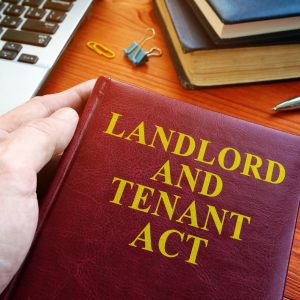
Understanding Tenant Rights When Selling Property in North Carolina
Special attention should be drawn to selling a home with existing tenants in North Carolina requires understanding the legally defined tenant rights. Legally, tenants have restrictions that are usually respected when selling the house.
According to North Carolina law, a landlord must notify the tenant before showing the designated window to potential buyers. In addition, any leases still in effect at the time of sale will survive; new owners of the property will have to observe these terms.
Aside from common agreements between the parties, the tenants have the right to occupy the premises until the lease period is completed. Landlords are bound to obey the regulations regarding the housing allowance. If such happens, they must ensure that the funds in question are appropriately relocated to new proprietors.
Knowing these North Carolina residential laws helps streamline a transaction, maintain smooth relations between the tenant and landlord during sales, and respect on all fronts. Cardinal Home Buyers can help guide you through the process with expertise and care
Comprehending Eviction Laws When Planning to Sell Rented Homes
Understanding eviction laws is crucial for a smooth transaction when selling a home with tenants in North Carolina. North Carolina law provides essential details on achieving an eviction concerning the sale of the property.
Landlords must check the lease agreements and ascertain if they are on rolling or fixed leases before any sale attempt is made, as this dictates the timeframe for serving notice for eviction. In this state, landlords must give at least seven days’ notice to non-paying tenants before suing them for eviction. A 30-day notice is necessary for terminating a month-to-month tenancy.
For fixed-term leases, unless there is cause, such as a breach of contract by the tenant, landlords typically cannot evict until the lease expires. Selling homes with active tenancies also involves adhering to tenant rights and ensuring that proper communication and legal protocols are observed throughout the sales process to avoid legal complications.
Understanding these eviction laws helps sellers navigate potential challenges and facilitates a more seamless real estate transaction in North Carolina’s housing market. Contact us for legal advice and expert guidance on the latest market trends for selling a house with tenants.
Strategies for Selling Rental Properties with Tenants in Place
- Communicate Clearly with Tenants
– Notify tenants early about your intent to sell and keep them informed throughout the process. - Understand Tenant Rights and Lease Agreements
– Comply with North Carolina laws regarding tenant rights, notice periods, and lease terms to avoid legal issues during the sale. - Offer Incentives for Cooperation
To encourage tenant cooperation during showings, consider offering reduced rent, gift cards, or help with moving costs. - Market as an Investment Property
– Promote the property to investors by highlighting current lease terms and rental income potential for immediate cash flow. - Highlight Stable Tenancy
– Emphasize a consistent rent payment history and long-term tenants to make the property more appealing to buyers. - Coordinate Showings Respectfully
– Schedule showings at convenient times for tenants to reduce disruption and maintain a positive relationship.
Best Practices for Communicating with Tenants During a Home Sale

Effective communication ensures a smooth process when selling a home with tenants in North Carolina’s real estate market. As North Carolina tenant laws require, give tenants advance notice of the sale and explain how it might impact them.
It’s essential to maintain open lines of communication and address any concerns they may have about showings, inspections, or potential new ownership. Scheduling property showings at convenient times for tenants helps minimize disruptions and demonstrates respect for their privacy.
Offering incentives, such as reduced rent for cooperation during sales, can foster goodwill and encourage tenant participation. Transparency about timelines and steps involved in the sale builds trust and reduces anxiety among tenants.
Keeping them informed about updates ensures they feel included and respected throughout the transaction.
Preparing a Tenanted Home for Sale: Tips for Success
Here’s how you can prepare a tenanted home for a successful sale:
- Communicate Early and Transparently
– Inform tenants of your intent to sell as early as possible to build trust and encourage cooperation. - Review the Lease Agreement and Understand Tenant Rights
Familiarize yourself with North Carolina landlord-tenant laws, which protect tenants’ occupancy during the sale, address issues related to property damage, and ensure your actions comply with the lease terms. - Encourage Cleanliness and Presentation
– Work with tenants to maintain a clean, clutter-free home for showings. Consider offering incentives, such as reduced rent, to motivate their participation. - Schedule Showings Respectfully
– Coordinate with tenants to schedule showings at convenient times to minimize disruption and respect their privacy. - Address Repairs and Boost Curb Appeal
– Complete necessary maintenance and cosmetic upgrades—both interior and exterior—without infringing on tenant rights. A well-maintained property is more attractive to buyers. - Partner with an Experienced Real Estate Professional
– Work with an agent who has experience selling tenant-occupied properties in North Carolina to navigate legal complexities and market effectively.
Legal Guidelines for Selling a Tenanted House in North Carolina

Understanding the legal guidelines is crucial when selling a house with tenants in North Carolina to ensure a smooth transaction. Landlords must be aware of tenant rights under North Carolina law, which includes honoring existing lease agreements until they naturally expire unless both parties agree otherwise.
The landlord must give tenants proper notice of the sale; typically, a 24-hour notice is required before showing the property to potential cash home buyers in Charlotte and surrounding cities in North Carolina. Sellers must communicate effectively and maintain transparency with tenants throughout the process.
Additionally, landlords should review any agreements related to security deposits and ensure these are transferred correctly to new owners or returned appropriately when leases end. Compliance with state regulations concerning tenant privacy and adherence to fair housing laws is essential to avoid legal complications during selling a tenanted property in North Carolina real estate markets.
Tax Implications of Selling Rental Properties in North Carolina
When selling a home with tenants in North Carolina, it’s crucial to understand the tax implications associated with selling rental properties. First and foremost, property owners must consider capital gains tax, which applies to the profit made from the sale of the rental property.
In North Carolina, if you’ve owned the property for over a year, these gains are typically taxed at a lower long-term capital gains rate. However, short-term capital gains rates apply if sold within a year of ownership, which are generally higher and align with ordinary income tax rates.
Furthermore, sellers should be aware of depreciation recapture taxes. Over the years of renting out your property, you’ve likely claimed depreciation deductions on your taxes; upon selling, this depreciation is “recaptured” and taxed as ordinary income up to 25%.
Additionally, any remaining mortgage debt forgiven during the sale could be considered taxable income unless exempt under certain conditions, such as insolvency or bankruptcy. It’s also vital to report all transaction details accurately on IRS Form 4797 or Schedule D when filing taxes after the sale.
Consulting with a tax professional familiar with North Carolina real estate transactions can help navigate these complexities, ensure compliance, and maximize financial outcomes.
How to Notify Tenants of Property Sale in North Carolina
When selling a home with tenants in North Carolina, it is crucial to properly notify them about the property sale to ensure a smooth transition. According to North Carolina real estate laws, landlords must adhere to specific notification procedures that respect tenant rights while facilitating the sale process.
Landlords should review the lease agreement, as it may contain clauses regarding property sales and tenant notifications. Providing written notice is typically essential, allowing tenants ample time to prepare for potential changes.
Open communication can help alleviate tenant concerns and minimize disruptions during showings or inspections. Landlords should inform tenants about their rights under North Carolina law, such as continuing their lease terms even after the property is sold.
Maintaining transparency about timelines and expectations can foster cooperation from tenants throughout the sale process. Awareness of fair housing regulations and privacy requirements ensures compliance with state laws while preserving a positive landlord-tenant relationship during this transitional period.
Marketing Strategies for Selling Homes with Current Tenants

Effective marketing strategies are crucial to a successful transaction when selling a home to tenants in North Carolina. It’s also important to communicate clearly with the tenants about showing schedules and maintain good relationships to facilitate smooth property viewings.
Highlighting tenant payment history can appeal to investors looking for immediate rental income. High-quality photographs and virtual tours can showcase the property’s potential without disrupting tenant privacy.
Targeting real estate investors through specialized channels can also be beneficial, as they often look for properties with existing rental streams. Engaging a real estate professional experienced in North Carolina’s market conditions can help navigate the intricacies of selling tenant-occupied homes, ensuring compliance with state laws while maximizing exposure through multiple listing services (MLS) and social media platforms.
The Role of Property Managers in Facilitating Home Sales with Tenants
Property managers play a crucial role in facilitating the sale of a home with tenants in North Carolina real estate. They act as intermediaries between the property owner and tenants, ensuring that communication remains clear and consistent throughout the selling process.
Property managers help coordinate showings, manage tenant relations, and address tenants’ concerns about the transition. By effectively managing tenant expectations and maintaining a positive relationship, property managers can minimize disruptions and maintain the property’s appeal to potential buyers.
Their expertise in local rental laws is invaluable in navigating lease agreements and ensuring compliance with North Carolina’s tenant rights regulations during the sale. Additionally, property managers can provide strategic advice on enhancing the property’s marketability while respecting tenant privacy and occupancy rights.
This balance helps streamline the sales process, making it smoother for sellers and tenants involved in North Carolina real estate transactions.
How to Handle Tenant Objections During the Sale Process
When selling a home with tenants in North Carolina real estate, handling tenant objections effectively ensures a smooth sale process. Open communication is key; inform tenants about the intention to sell your house for cash in Greensboro and other North Carolina cities and discuss how it might impact them.
Address concerns by highlighting tenant rights under North Carolina law, such as lease terms and notice periods. Offer flexible showing schedules to minimize disruption, and consider incentives like rent reductions or assistance with moving costs if relocation becomes necessary.
Emphasize that maintaining the property’s condition can benefit both parties by attracting better offers. By respecting tenant privacy and addressing their concerns empathetically, sellers can alleviate objections and foster cooperation throughout the real estate transaction.
Can My Landlord Sell the House I’m Renting in North Carolina?
Yes, in North Carolina, a landlord can sell the house you are renting. However, landlords and tenants must consider specific rights and responsibilities during this process.
When selling a home with tenants in North Carolina real estate, the existing lease agreements remain valid even after the property changes hands. If you have a fixed-term lease, your new landlord must honor it until it expires.
For month-to-month leases, the new owner must provide adequate notice, typically 30 days, if they wish to terminate the tenancy. Tenants must also understand their rights under North Carolina law, including receiving proper notice of showings or inspections as stipulated by the lease agreement.
Meanwhile, landlords should ensure open communication with tenants throughout the sale process and comply with legal obligations to facilitate a smooth transition for all parties involved in North Carolina’s real estate market.
How Much Notice Does a Landlord Have to Give a Tenant to Move Out in NC?
In North Carolina, understanding the notice requirements for asking a tenant to move out is crucial when selling a home with tenants. According to North Carolina real estate law, the amount of notice a landlord must give their tenant depends on the lease agreement terms and the reason for termination.
For a month-to-month tenancy, landlords typically must provide a 7-day written notice. However, if the lease is ending or there’s an intention to sell the property, proper communication is key.
Landlords must carefully examine their lease agreements and adhere to state laws before listing their property in the North Carolina real estate market. This guarantees a seamless transition and enables them to uphold their legal commitments while preserving positive relationships with tenants.
Understanding these notice requirements can significantly impact the success of selling your home with tenants involved in North Carolina.
Negotiating Buyouts with Tenants Before Selling Your Home
Negotiating buyouts can be an effective strategy for facilitating a smoother sales process when selling a home with tenants in North Carolina. Understanding the dynamics of tenant relationships and North Carolina’s rental laws is crucial for homeowners aiming to sell their property with tenants still residing there.
A buyout involves offering tenants financial compensation or other incentives to vacate the property before the sale. This approach can be particularly advantageous in attracting buyers who prefer vacant homes, as it allows them more flexibility with viewings and renovations.
Homeowners should communicate openly with tenants about their selling intentions, ensuring transparency while discussing buyout terms. It’s essential to consider tenant rights and provide fair offers that account for relocation costs and inconvenience.
Additionally, crafting a written agreement outlining the buyout terms can help avoid misunderstandings and legal disputes, ensuring both parties are clear on expectations and timelines. By effectively negotiating buyouts, sellers in North Carolina can streamline transitioning from a tenant-occupied property to one ready for market without unnecessary complications.
Need to sell your home fast and hassle-free? Cardinal Home Buyers offers fair cash deals, handles all the details, and skips the repairs. Call (919) 609-5173 for a no-obligation offer—get started today!
Helpful North Carolina Blog Articles
- Selling Your Home And Relocating In North Carolina
- Selling A Home With Tenants In North Carolina
- Taxes When Selling Your House In North Carolina
- Selling Your Home Amid Divorce in North Carolina
- Selling A Fixer-upper Home In North Carolina’s Real Estate Market
- Selling A House While it is in Foreclosure in North Carolina
- Selling a Probate House in North Carolina
- Selling Your Home Without A Realtor In North Carolina
- Sell Your North Carolina Home With An Existing Mortgage
- Tenant Damage to Property In North Carolina
- Sell Your Home Despite Mold Issues in North Carolina
- Best And Worst Neighborhoods For Real Estate Investments In NC
- Property Tax Rates For Homeowners And Real Estate Investors In NC
- Understanding North Carolina Quitclaim Deed Rules
- Expert Property Management Services For Homes In North Carolina

| RENTAL HOME | REALTOR | INVESTMENT PROPERTIES | INVESTMENT PROPERTY | RALEIGH | RALEIGH REAL |
| PAYMENTS | PRICE | MARKET PRICE | OPTIONS | MONEY | |
| INFORMATION | INCENTIVIZE | REALTY | MOBILE HOME | TENANTS RIGHTS | THE INTERNET |
| INTERNET | ATTORNEY | U.S. | SELLER FINANCING | PROPERTY TAXES | PROFITS |
| HOMEBUYERS | MARKET ANALYSIS | MANAGEMENT | JUDGMENT | DOWN PAYMENT | COPYRIGHT |
| CONTRACTUAL RIGHT | BLOG | OF THE PROPERTY | YOUR RENTAL PROPERTY |
